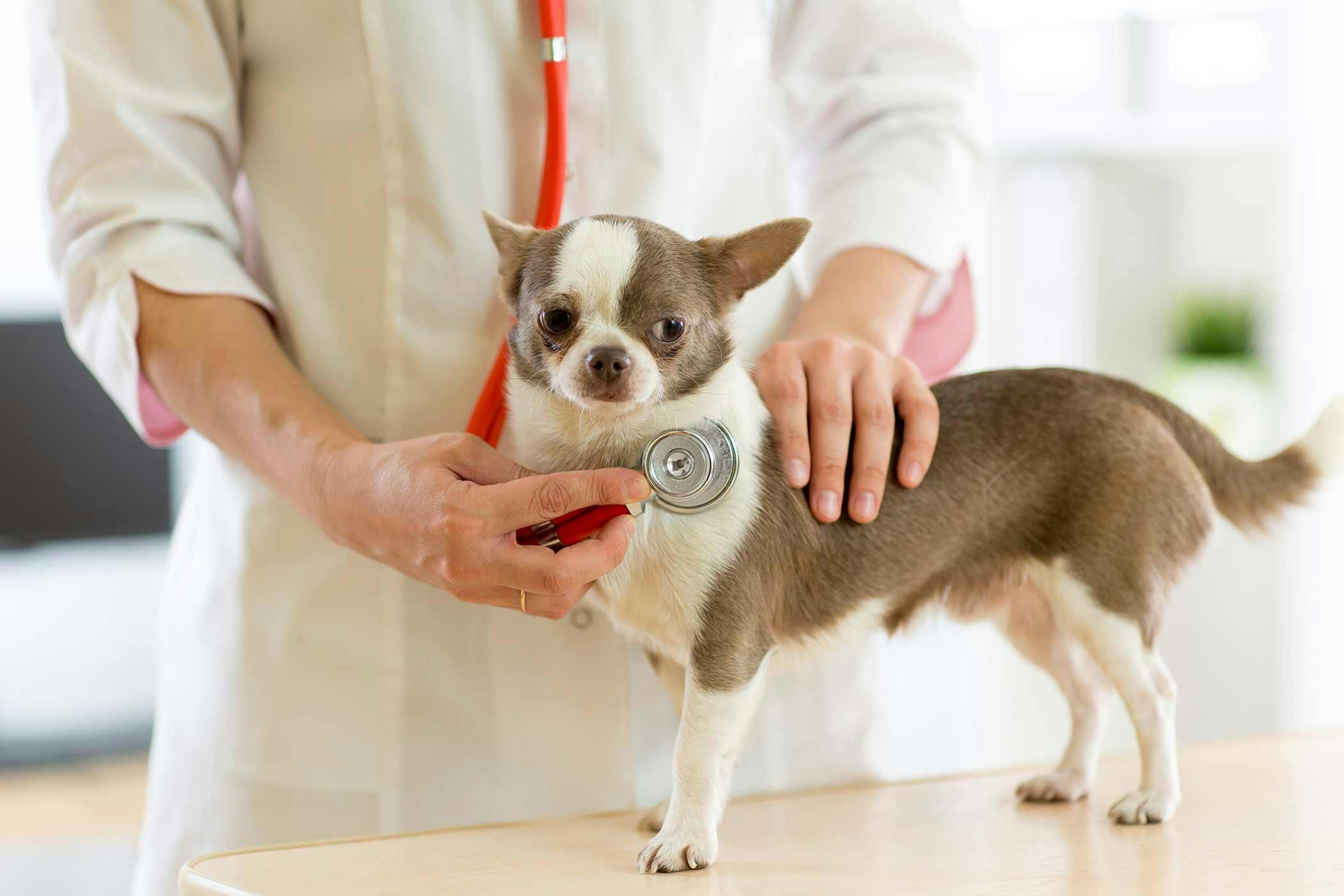
Small dogs and puppies normally have heart rates of 120 to 160 beats per minute. Newborns 0 to 1 month old.

Dogs over 30 pounds have heart rates of 60 to 120.
Normal puppy heart rate 2 months. Resting Heart Rate Ranges of a Dog in Beats Per Minute. Smaller and out of shape dogs may have faster normal heart rates than larger dogs. Because of this little dogs typically have heart rates between 100-140 while larger dogs will be between 60-100 BPM.
Normal Puppy Heart Rate. Though the heart rate will vary depending on your dogs breed the normal heart rate for puppies is around 220 beats per minute. As your dog matures his normal heart rate will slow down to between 60 to 160 beats per minute depending on his size.
How fast your dogs heart beats depends on his age and size. Young puppies have the most rapid heartbeats. 160 to 200 beats per minute at birth and up to 220 bpm when they are 2 weeks old.
An adult dogs heart beats 60 to 140 times per minute. Usually the larger the dog the slower the heart rate. For dogs a normal heartbeat varies on size.
Small dogs and puppies normally have heart rates of 120 to 160 beats per minute. Dogs over 30 pounds have heart rates of 60 to 120. The larger the dog the slower the normal heart rate.
If your dog has a heart rate outside the normal range contact your veterinarian immediately. Normal Respiratory Rate for Dogs. While there is a standard bar for what constitutes as normal for a dogs heart rate there are some exceptions to the rule.
Normal Heart Rate. The normal pulse rate for a human is 60 beats per minute. Your puppys is much faster.
A healthy puppy pulse rate is around 220 bpm. As he grows his heart rate will slow. Toy breeds level out around 180 bpm.
Thats a whole lot considering that normal breathing rate in dogs is 15 to 35 breaths per minute. Puppies tend to overheat fast and get tired from lots of exercise compared to adult dogs. Keep an eye on them for signs of being tired or hot especially in those brachycephalic puppies.
4 months to 2 years. For dogs a normal heartbeat varies on size. Small dogs and puppies normally have heart rates of 120 to 160 beats per minute.
Dogs over 30 pounds have heart rates of 60 to 120. The larger the dog the slower the normal heart rate. 2 to -5 mEqL 15-24 mE 92-119 mgdl 117-123 mE 12-21 mdl 55-114 mgdl 80-150 68-215 pgdl 732-744 55-75 46-71 mgdl 40-45 mEqL 7-12 s 12-22 s 147-156 mEqL 6 to 0 mE 17-24 mEqL 87-118 mgdl 15-24 mmow 21-26 mmolL 117-123 mmolL 106-186 pmolL 31-63 mmolL 12-39 pmolL 149-229 mmolL 40-45 mmolL.
Heart rate - 180 beats a minute for puppies. The normal respiratory rate for dogs is 16 to 20 breaths per minute. The normal heartrate is 70 to 160 bpm.
Large dogs tend to have slower heart rates so your dog should be in the 70 to 120 bpm range. Normal heart rate dog 60 160 per minute Normal heart rate cat 140 220 per minute. Search the app store for your dogs heart resting breathing rate check the reviews and find the best app that suits your needs.
A puppys breathing rate is 15 to 40 breaths per minute which is faster than 10 to 30 times per minute for a. A normal canine heart rate for an average dog is around 60-140 beats per minute. For large breeds their heart rate will average at 60-100 beats per minute while for small dogs their heartbeat.
Resting heart rates ie. Quiet calm and relaxed for adult cats are usually around 120 -140 beats per minute. Adult dogs will usually be between 70 120 beats per minute.
To take your pets heart rate you can feel the femoral artery on the mid-section the inside of the hind leg. A normal dogs pulse is 60-140 bpm depending on age breed and size. Puppies can have a heart rate of 160-220 bpm.
A normal dog respiratory rate. What is a healthy heart rate for a child. When your child is sitting quietly their heart rate is considered a resting heart rate.
A healthy resting heart rate can vary by age. Newborns 0 to 1 month old. 70 to 190 beats per minute.
Infants 1 to 11 months old. 80 to 160 beats per minute. Children 1 to 2 years old.
80 to 130 beats per minute. A kittens normal heart rate may range from 200 to 260 beats per minute. Also if the kitten is sleeping the pulse may be lower while stressful situations will cause a faster heart rate.
The kitten heart rate may be calculated by feeling his heart beat through the chest. However due to the fast rate you might not be able to take his pulse. The normal values for blood pressure pulse rate and respiratory rate change as the newborninfantchild grows and ages.
Body temperature does not change with age. However body temperature may fluctuate depending upon the time of day and a normal temperature may range between 970 F 361 C and 1003 F 379 C. As a guideline a normal healthy large dog should have a resting heart rate of around 60-100 beats per minute while smaller dogs usually have a resting heart rate of 100-140 beats per minute.
Puppies up to 12 months old may have a.